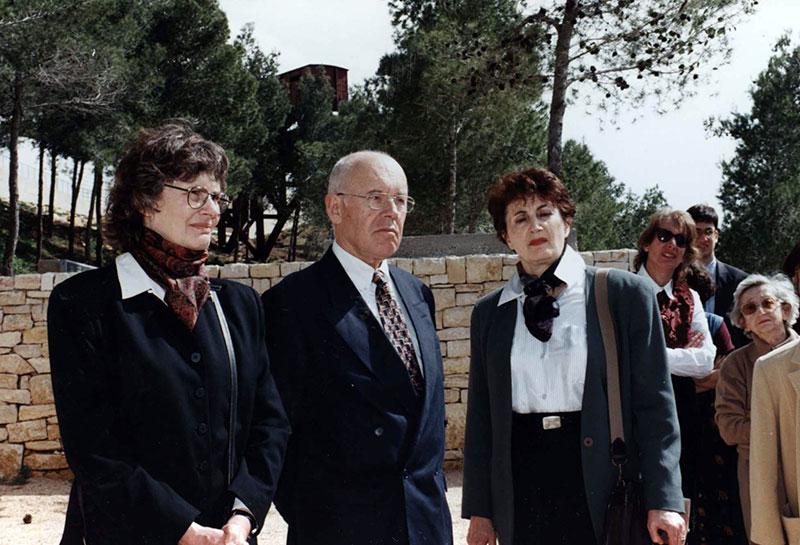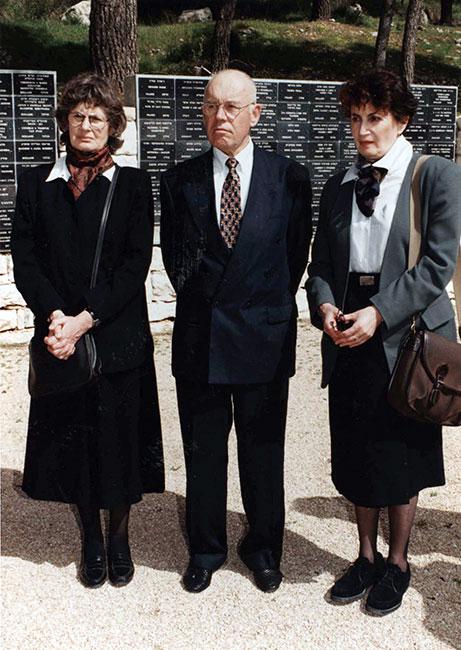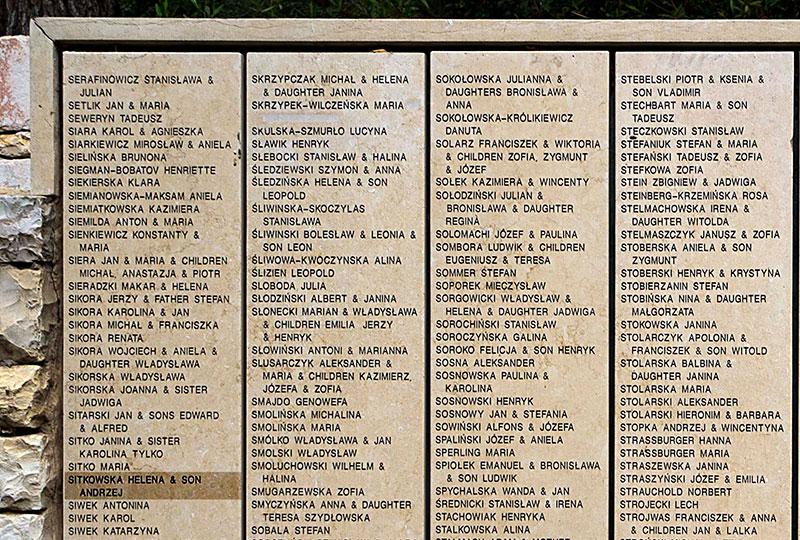





Sunday to Thursday: 09:00-17:00
Fridays and Holiday eves: 09:00-14:00
Yad Vashem is closed on Saturdays and all Jewish Holidays.
Entrance to the Holocaust History Museum is not permitted for children under the age of 10. Babies in strollers or carriers will not be permitted to enter.






When the war broke out David and Bronislawa Kozak lived in Czestochowa with their two daughters Dobra Jenta (later Marion Miliband) and Hadassah. Shortly after the German occupation the family business was confiscated, and when the ghetto was established in April 1941, the Kozaks had to leave their home and move into the ghetto. In the fall of 1942 Bronislawa and the two girls were smuggled out of the ghetto by a former employee of the family business. With the help of Cecylia Kozak, the girls' aunt, they managed to reach Warsaw, where Bronislawa, using a false identity, found work as a maid with a Christian family. Her daughters were placed in a convent near Warsaw. A few months later, however, the convent authorities became nervous about keeping two Jewish girls. The girls’ aunt was able to place Marion in another convent, and with the help of a friend established contact with his neighbor, Helena Sitkowska, who was willing to take in five-year-old Hadassah.
Sitkowska was a widow who lived in a quiet suburb of Warsaw with her father, her ten-year-old daughter, Magda, and 15-year-old son, Andrzej. In their testimony Hadassah and Marion said that "Although food must have been in very short supply, the house had an air of pre-war comfort about it". Hadassah was not allowed to leave the house or to go to school, but the family, and especially Andrzej, taught her to read.
In July 1944, shortly before the outbreak of the Warsaw Uprising, looking for a safer place for her relatives, Cecylia Kozak brought Marion to Sitkowska. Sometime later Bronislawa joined her daughters. Despite the difficult times, the constant danger and fear, especially after Andrzej left home to join the insurgents, Sitkowska took good care of her three wards. Their aunt Cecylia, who had been their outside contact and support, was killed during the uprising, and they were now totally dependent on their benefactor's protection.
After the suppression of the uprising, when the Warsaw residents were driven out of the city, Sitkowska had to leave and join the column of refugees. She did not abandon the Kosaks and they went with her. After reaching Kielce, Sitkowska continued to look after her three charges, providing them with clothes and money. She arranged for them to move in with relatives, where they stayed until January 1945, when the area was liberated. Bornislawa and her daughters had survived, but David Kozak, the girls' father, had been murdered during the Holocaust.
The Sitkowskis were Polish patriots who considered saving Jews a humanitarian duty and an integral part of their struggle against the German occupier. After the war, Kozak and her daughters emigrated to the United States and to England, where they remembered the Sitkowskis’ kindness for many years. "There is a uniqueness about the history of this family in that we have formed firm bonds of friendship which survived the war", wrote Marion and Hadassah in their testimony many years later.
Marion Kozak settled in the United Kingdom, her two sons, David and Ed Miliband, became senior leaders of the Labor Party.
On June 29, 1995, Yad Vashem recognized Helena Sitkowska and her son, Andrzej Sitkowski, as Righteous Among the Nations.
In February 1996 Andrzej Sitkowski, joined by Marion Kozak Miliband and Hadassah Kozak came to Jerusalem and a ceremony was held at Yad Vashem in honor of the Sitkowskis.

Thank you for registering to receive information from Yad Vashem.
You will receive periodic updates regarding recent events, publications and new initiatives.

"The work of Yad Vashem is critical and necessary to remind the world of the consequences of hate"
Paul Daly
#GivingTuesday
Donate to Educate Against Hate


Worldwide antisemitism is on the rise.
At Yad Vashem, we strive to make the world a better place by combating antisemitism through teacher training, international lectures and workshops and online courses.
We need you to partner with us in this vital mission to #EducateAgainstHate
The good news:
The Yad Vashem website had recently undergone a major upgrade!
The less good news:
The page you are looking for has apparently been moved.
We are therefore redirecting you to what we hope will be a useful landing page.
For any questions/clarifications/problems, please contact: webmaster@yadvashem.org.il
Press the X button to continue



